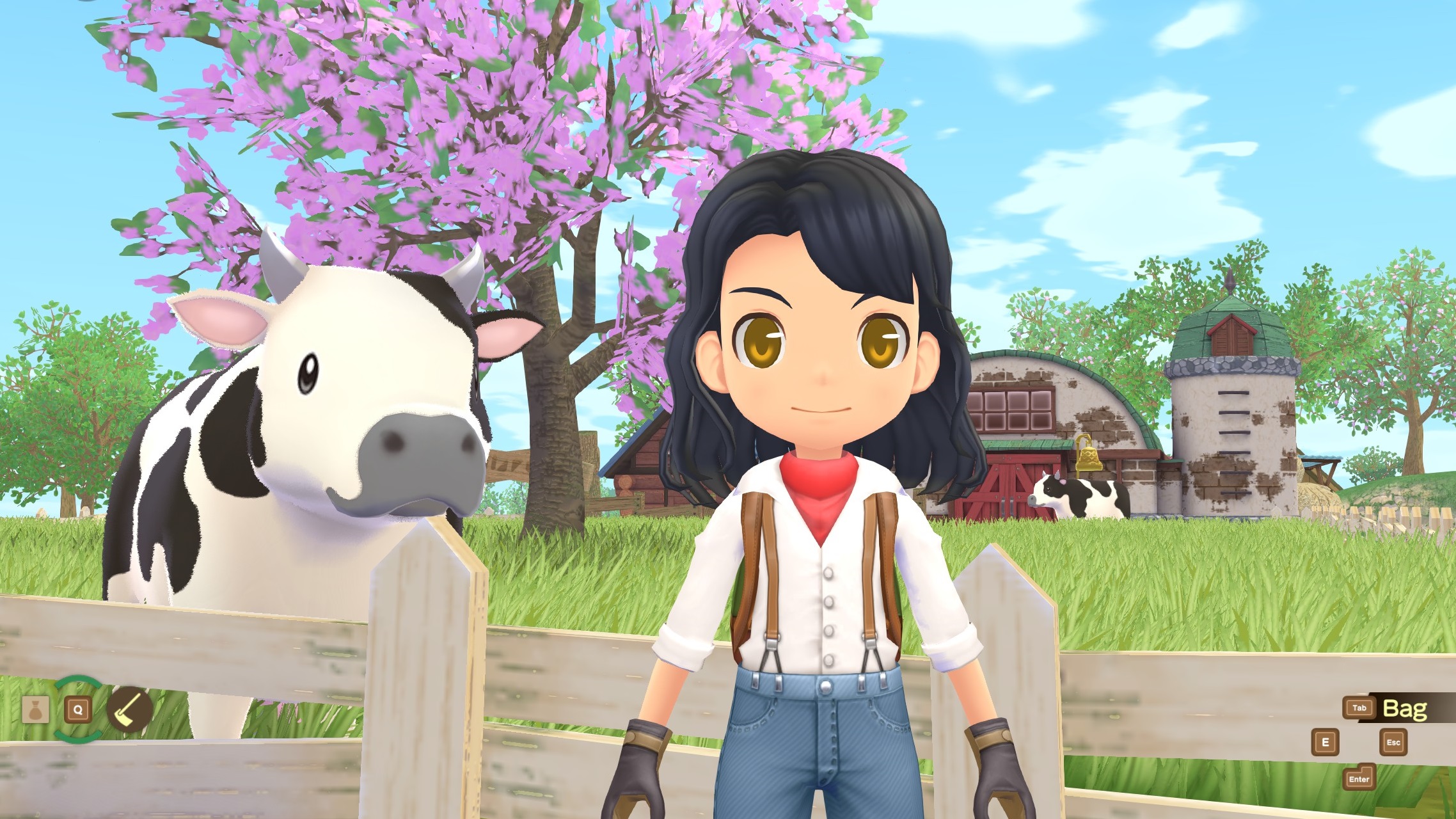PC Gamer's got your back
Story of Seasons: A Wonderful Life is supposedly a laid-back farming sim remake, but it reminded me how hard games used to be.
What is it? A classic farm sim remake with a slower pace
Release date June 27, 2023
Expect to pay $50/£35
Developer Marvelous Inc
Publisher Xseed Games
Reviewed on Nvidia RTX 2070 Super, 32GB RAM, Intel i7 8700K
Steam Deck Unverified
Link Official site
As I stand in a field of 36 wilted turnips, the seeds for which cost most of my savings, my farmer's eyes are pinched in a pained expression because I've not eaten in days. I won't have the cash for new turnip seeds until next week because my cow, unbeknownst to me, hasn't eaten recently either, and she's producing poor quality milk I can barely sell for a pittance. Life in Stardew Valley is never this dire.
A Wonderful Life is a remake of the 2004 Harvest Moon with the same subtitle, and begins as all the modern farm sims inspired by the series still do, with a young adult from the city moving out to the countryside to take over a family farm and build friendships, a family, and profit. It immediately puts other recent Story of Seasons PC releases to shame with cute, higher quality graphics, though it does sand the edges off old character designs more than I'd like.
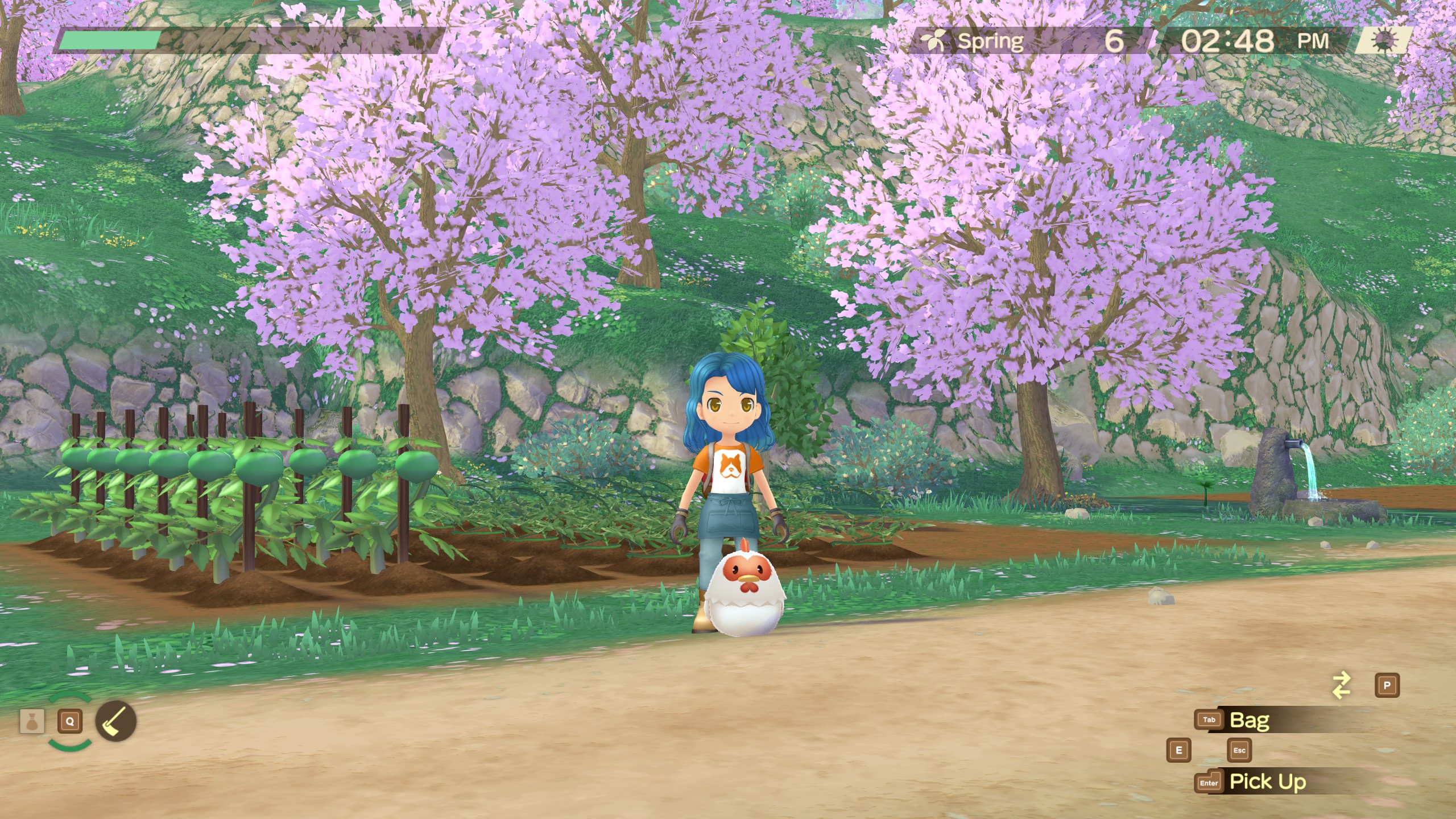
It comes with modern improvements like:
- Movement controls that don't make me want to scream
- A choice of pronouns
- Eight total marriage candidates mashed together from the "boy" and later "girl" versions of the original release
- The imminently important ability to leap over fences instead of walking around them
What it doesn't modernize is the stubborn opacity of the original, a game that was meant to come with a printed "How To Play" manual tucked in its box which I suspect also glossed over the same details as the in-game tips menu. This quality of A Wonderful Life nearly frustrated me into giving up the farm until, like a city kid finding romance in the valley, it won over my begrudging affection for its idiosyncrasies.
Cult-ivated classic
The basic tenants of A Wonderful Life will be familiar to modern farm life sim players: Each morning I wake up around 6 am, cuddle each of my chickens, milk the cows, let all the animals outside into the pasture, spend about half my day's stamina watering crops, and then decide whether I'll use my afternoon to deliver gifts to increase my friendship with the locals, go fishing, or dig up relics in the archeology site.
A Wonderful Life makes clear that it's truly a simulation of a lifetime, not the crafting, hoarding, and optimizing games I've grown accustomed to.
During my first spring on the farm I grow a modest crop of tomatoes and watermelons, saving up the 1,000 gold to buy a second hen. I'm sweet on the bar waitress Molly who also moved to the valley from the city and after learning that she likes the Moon Ore I found at the dig site, I spend two afternoons digging up more. My first season's progress fools me into thinking I'll quickly save up for more animals and farm facilities.
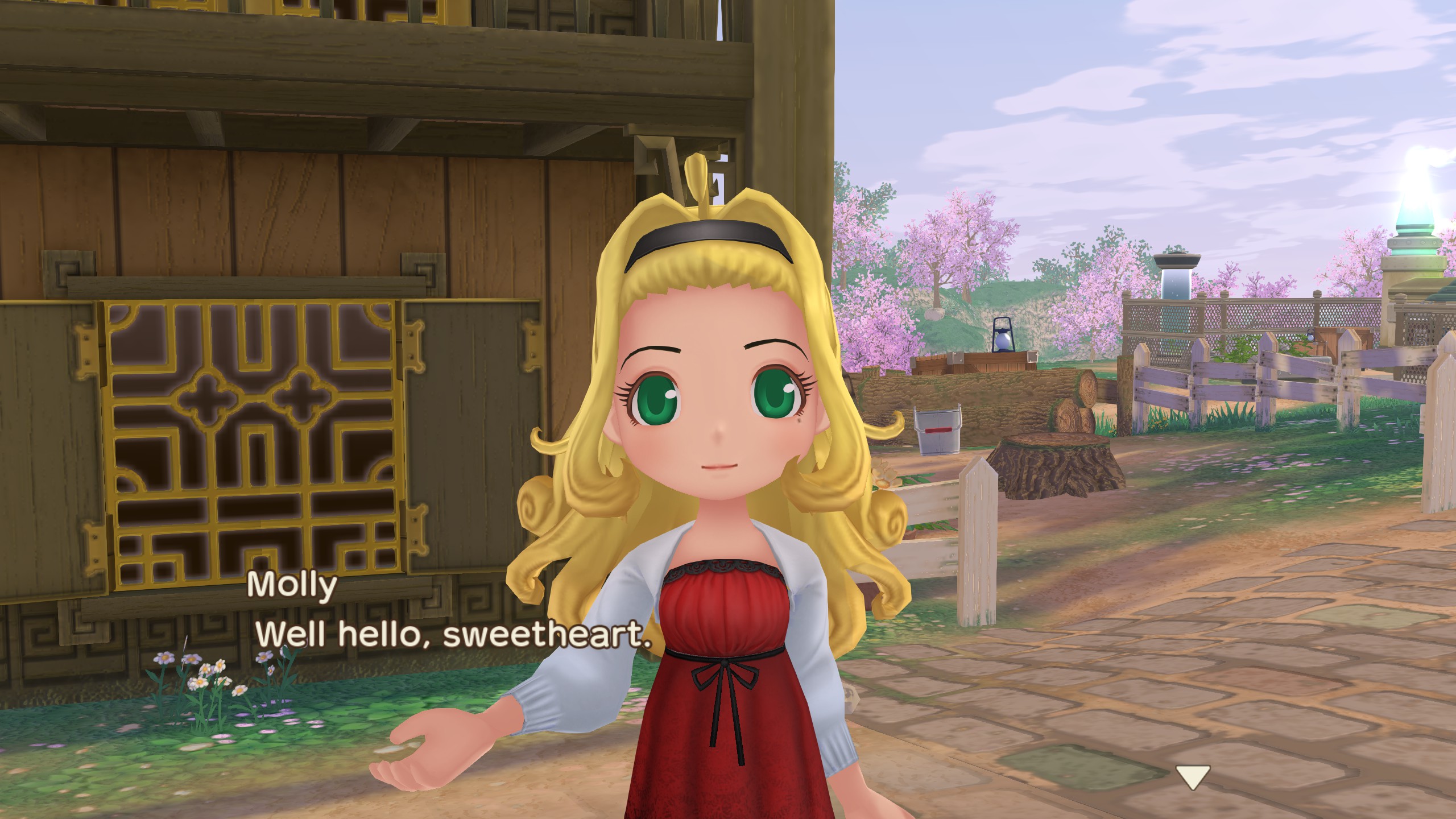
My first summer puts me in my place.
I faint in my field one afternoon, having eaten so little I couldn't water all my crops in a day. I'd left my cow Ginger in a similar state, not realizing that my pasture did not have any long grass for her to eat. Her health had completely depleted by midsummer, leaving me to milk her for just four bottles of the lowest quality milk per day. Nobody wants this milk. Apparently I don't even want this milk: I can't sell it in my shipping bin or even cook with it and it sells for a paltry 10% of normal quality milk even if I do manage to hawk it at my market stall in town. Then I foolishly failed to pick my turnips on time, wasting a field of crops. It took until mid-Autumn to fix my mistakes and to finally figure out that A Wonderful Life was telling me to slow down. A lot.
That pace is where A Wonderful Life makes clear that it's truly a simulation of a lifetime, not the fast-tracked crafting, hoarding, and optimizing games I've grown accustomed to.
Each season is only 10 days long, much shorter than the 28 most current games opt for, though that's for the best as the story takes place across several years as I get married, have a child, and watch the village residents change. The shorter seasons give me just enough time to harvest only one or two groups of crops before the next. Field space is limited and buying additional animals feels expensive initially, so profit comes at an equally slow pace.
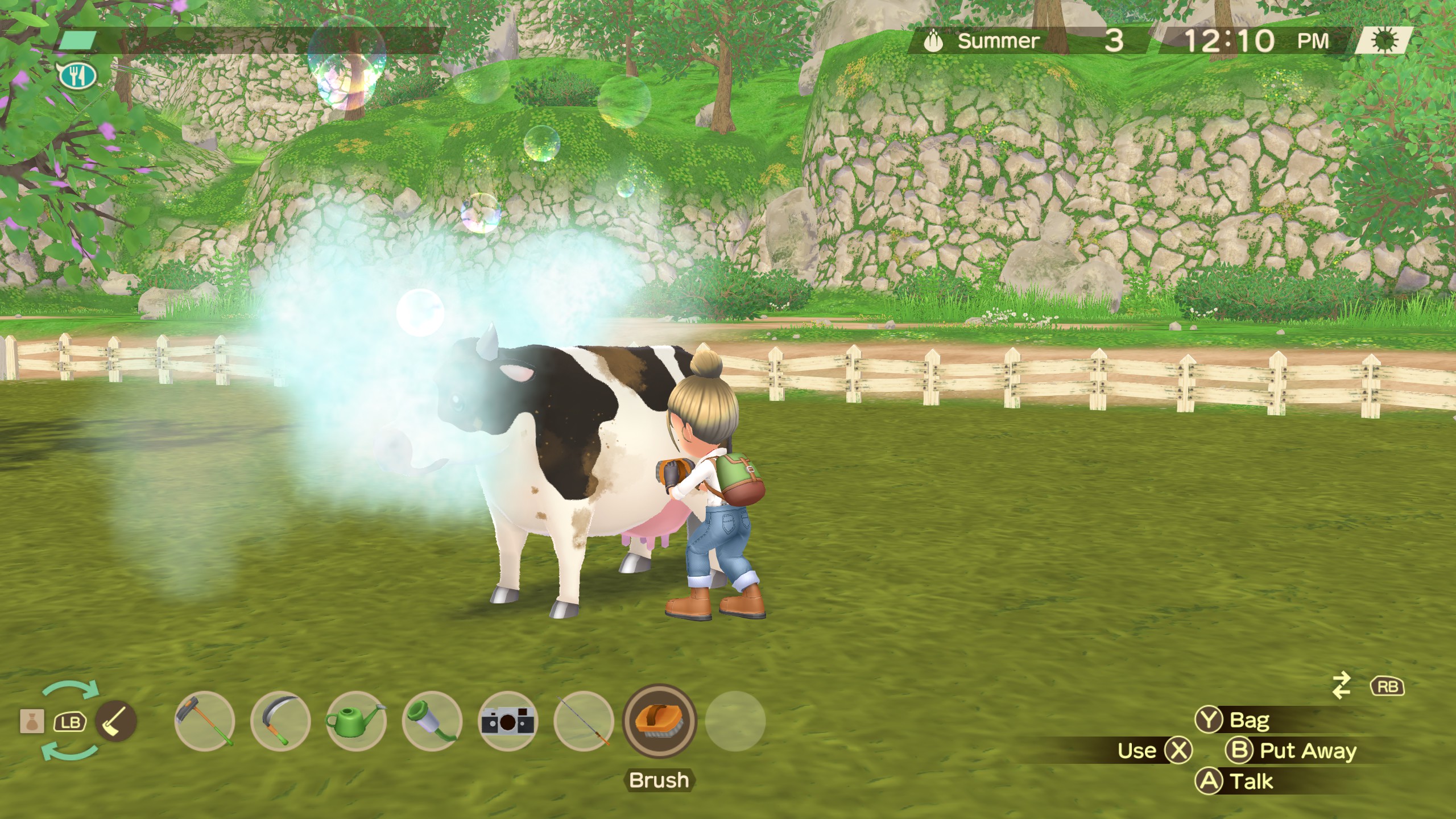
But it is kind in some areas: A Wonderful Life isn't squeezing me to pay for crafting game luxuries like a bigger backpack and just gives me a generous 40 slot inventory right away. Instead I'm incentivized to save across seasons for major farm upgrades like a dairy processing room, which has such a prohibitive 150,000 gold price tag that I actually feel less stressed knowing I can't possibly afford it for a couple years. I can't even splurge on better tools until my first summer. It's not until year two that I unlock hybrid crop breeding or consider breeding any of my animals. All things come in time in A Wonderful Life.
Much as every other farm sim is about a city kid adjusting to pastoral life, they all allow me to continue living at a city pace
With that lesson learned the hard way, I start to see all the other ways A Wonderful Life wants me to stay attuned to the details of farm and town life. It doesn't have storage to craft so I can organize my fleet of chests and crops. Instead I pay close attention to my slowly growing herd of cows, breeding my first one when necessary so she continues to produce milk, separating her from the rest of the herd when she's close to giving birth, and hand-feeding her calf with mother's milk.
Rain and sun come and go at random, not on a daily basis, so an early spring shower may save me from watering crops until evening but an afternoon shower will see me running home to let my cows back into the barn so they don't catch a cold. Cooking is encouraged, but selling meals doesn't turn a profit, so ingredients are better used to make myself a hearty meal or prepare a gift for a friend. Fish, foraged plants, and dig site finds can't be sold in my nightly shipping bin so I've got to either wait for the two days a month local merchant Van is in town or set up my own stall and stand there all afternoon waiting to sell items to passerby as if I'm in an actual farmer's market. It's the activity that seems most ripe for more modernizing in the remake, but honestly I respect the commitment.
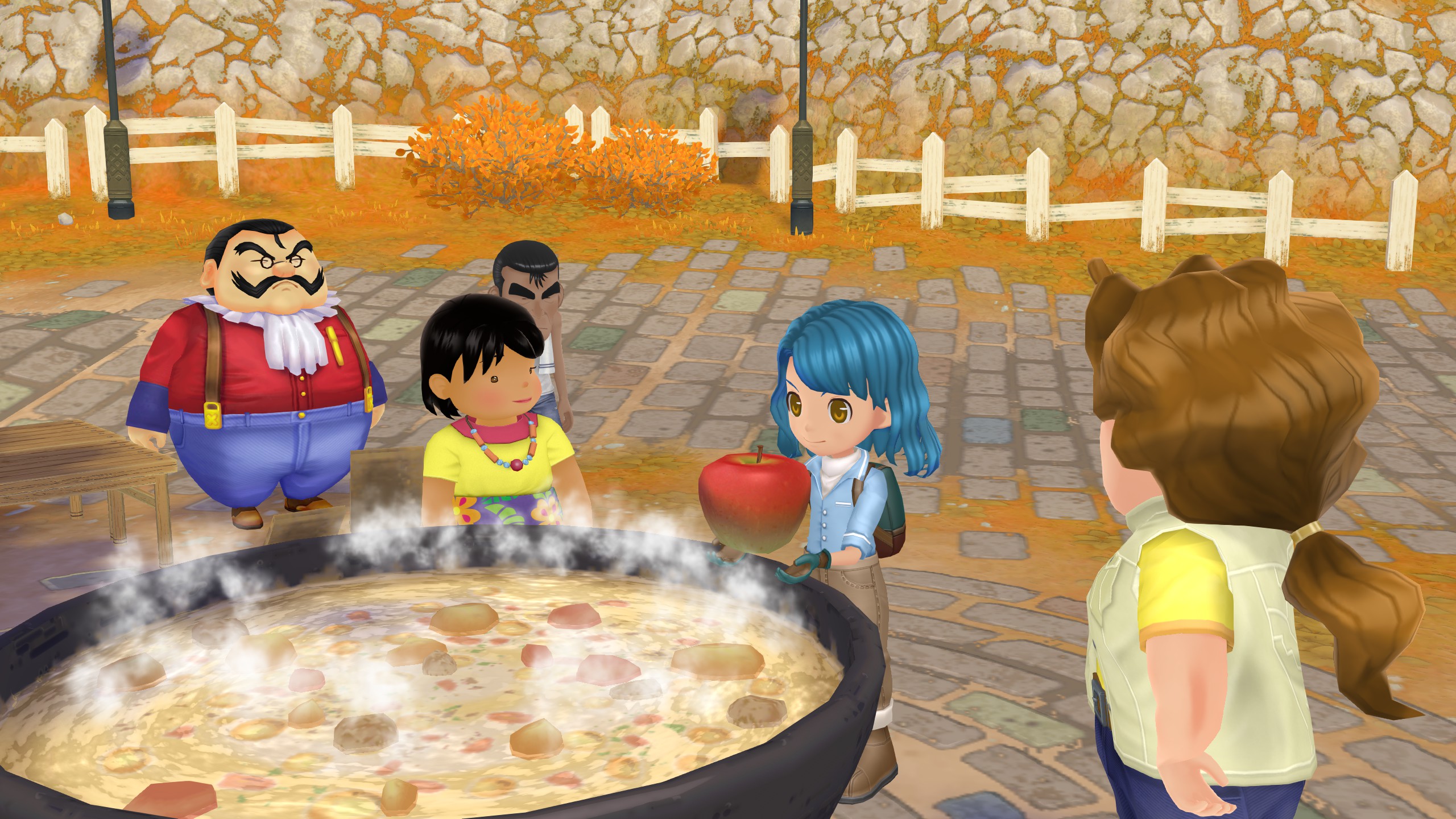
As the days turn to years in Forgotten Valley, I've slowly built up max hearts with my cows Ginger, Macha, and Chai so they produce top quality milk and had them birth calves for me to sell as well. I've finally learned that Matthew and Gordy, who both started with lower than average friendship scores, enjoy gifts of milk and "quick pickles" respectively. I've bought new toys for my daughter Millie and though I dream of her taking on the family farm, Molly's child is predisposed to athletics instead. I've brought home cooked meals for the New Year's celebration and witnessed a laid-back neighbor attempt to flirt with the town's rich girl. My farm makes more profit by far than that first ill-fated summer, but I've got no reason to chase maximizing or automation.
I was wary of nostalgia when I started A Wonderful Life. I cut my teeth failing at it on my GameCube but its seminal status alone isn't enough to recommend it over a flourishing selection of modern farm sims. There's no arguing that Stardew Valley, though heavily inspired by Harvest Moon, set the script for modern farmlife sims with combat, crafting, and a lot of control over the layout of your property. But much as every farm sim is about a city kid adjusting to pastoral life, they all allow me to continue living at a city pace: obsessively optimizing profits, dominating combat in the mines, and stumbling home just before passing out at 2 am.
A Wonderful Life is the first that's properly forced me to settle down and I've found its focus on slowly and carefully tending my farm isn't defunct; it's a different strain of sim that deserves to bloom again after being left fallow for so many seasons.

Lauren has been writing for PC Gamer since she went hunting for the cryptid Dark Souls fashion police in 2017. She accepted her role as Associate Editor in 2021, now serving as self-appointed chief cozy games and farmlife sim enjoyer. Her career originally began in game development and she remains fascinated by how games tick in the modding and speedrunning scenes. She likes long fantasy books, longer RPGs, can't stop playing co-op survival crafting games, and has spent a number of hours she refuses to count building houses in The Sims games for over 20 years.
